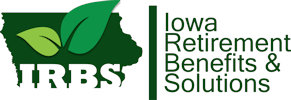The Crucial Role of Financial Representatives in Retirement
Posted by Ethan Ball
Serving Cedar Rapids, Iowa, and Surrounding Areas.
How Much Monthly Retirement Income Do You Need?
Planning for retirement can feel overwhelming, especially when you’re balancing day-to-day expenses with saving for the future. Even with diligent planning, it’s natural to wonder if you’ll have enough money to last throughout retirement. To help you feel more prepared, let’s explore how to estimate your personal retirement income needs and strategies to bridge any gaps.
How Much Should You Save for Retirement?
There’s no one-size-fits-all answer to how much you need to save for retirement. Your savings goal depends on factors like where you live, your lifestyle, healthcare needs, and plans for retirement activities. A common rule of thumb is to aim for replacing 70–80% of your pre-retirement income to maintain a similar standard of living, though this figure can vary based on individual circumstances.
Start by evaluating your anticipated expenses in retirement and comparing them with expected income sources, such as Social Security, pensions, retirement accounts, and personal savings. For clarity, consider consulting with a financial professional to review your finances and determine a target savings amount tailored to your goals.
How to Calculate Your Retirement Income Needs
Determining how much income you’ll need in retirement starts with a thorough look at your current expenses and future goals. Here’s a step-by-step approach:
1. Review Your Current Expenses: Identify your monthly and annual costs, such as housing, utilities, groceries, transportation, healthcare, and entertainment.
2. Adjust for Retirement: Anticipate how your expenses may change—commuting costs might drop, but healthcare costs could rise. If you plan to stay in your current home, account for potential upgrades or accessibility modifications.
3. Estimate Your Retirement Duration: Calculate how many years of income you’ll need based on your planned retirement age and life expectancy.
4. Define Your Retirement Goals: Think about your plans, whether that’s traveling, paying off debt, or helping family members financially.
5. Account for Unexpected Costs: Prepare for emergencies like home repairs, medical expenses, or family support needs.
6. Factor in Other Responsibilities: Some retirees may need to support aging parents, adult children, or even small business ventures.
To estimate your retirement budget, consider these common categories of expenses: 
• Housing: Mortgage payments, property taxes, insurance, maintenance, and utilities.
• Healthcare: Medicare premiums, out-of-pocket costs, prescriptions, and related expenses.
• Food: Groceries and dining out.
• Transportation: Vehicle maintenance, insurance, fuel, public transit, or travel costs.
• Travel & Leisure: Vacations, hobbies, and entertainment.
• Debt Payments: Ongoing loans or credit card payments.
• Miscellaneous: Taxes, charitable giving, clothing, and emergency funds.
What Is the Typical Monthly Retirement Income?
In 2022, the Bureau of Labor Statistics reported that individuals aged 65 and older spent an average of $57,818 annually—or approximately $4,818 per month. This is a helpful benchmark, but your retirement income needs will depend on your unique lifestyle and goals.
To maintain financial security, aim for a balance between savings and spending. If you notice your savings dwindling faster than expected, you may need to reduce expenses, adjust your lifestyle, or explore additional income streams.
How to Increase Your Retirement Income
If your income falls short of covering your expenses, there are ways to bridge the gap:
• Part-Time Work: Consider taking on flexible, low-stress work.
• Passive Income: Generate income through rental properties, dividends, or other investments.
• Annuities: These can provide a guaranteed income stream for life and help grow savings, depending on the type.
By working with a financial professional, you can explore these options and create a plan tailored to your income needs. This proactive approach can give you greater peace of mind about the future and ensure a more secure retirement.
Wrapping It Up
If you are ready to take control of your financial situation and would like more to get started with developing your own customized retirement plan, we offer a free and confidential strategy discussion. Simply Click Here to Contact Us and we’ll touch base with you to get something scheduled. You can also email us directly at info@iowaretirementsolutions.com or by phone at 319-423-3332. Whenever you need us, we’re here for you! If you’re unsure, and preparing for retirement in Cedar Rapids, consider working with a trusted financial professional at Iowa Retirement Benefits & Solutions who can help you navigate these challenges and keep your investment strategy on track.
Investment advisory services are offered through Fusion Capital Management, an SEC registered investment advisor. The firm only transacts business in states where it is properly registered or is excluded or exempted from registration requirements. SEC registration is not an endorsement of the firm by the commission and does not mean that the advisor has attained a specific level of skill or ability. All investment strategies have the potential for profit or loss.




